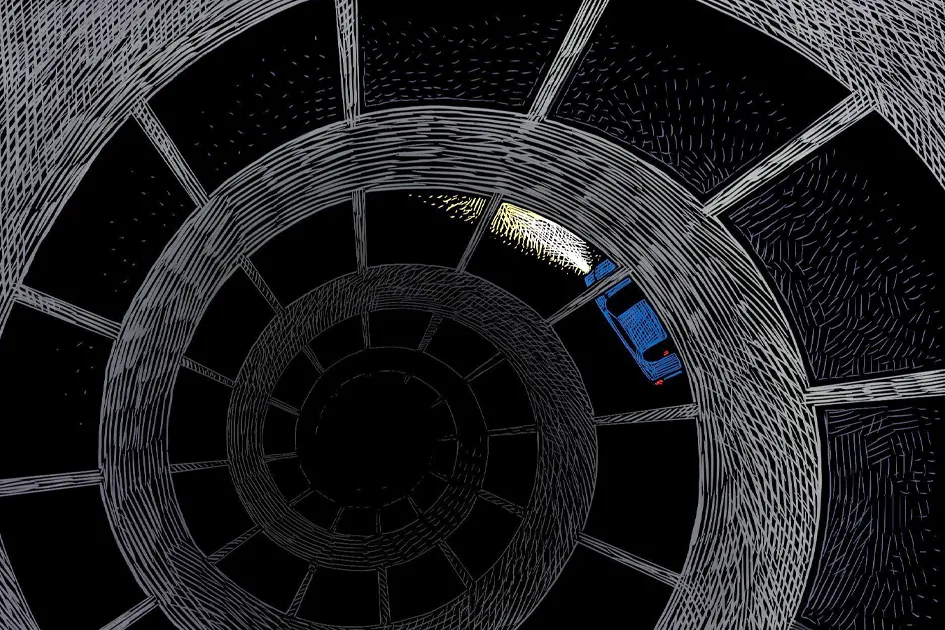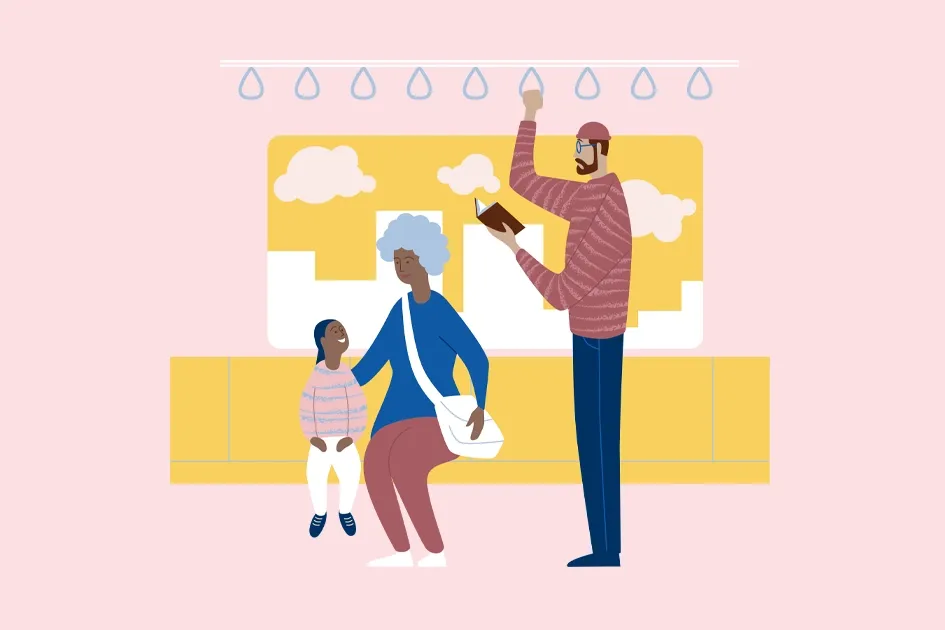While waiting in line for the long, sticky tram ride back to our car, I released a bone-weary sigh. We’d already spent the day standing in innumerable queues, drifting in and out of dream worlds at Magic Kingdom. We’d withstood crowds and irritation and an oppressive heat while watching our children fall apart into various stages of exhaustion and anger. We weren’t alone. Every time I saw a fellow parent wrangling a willful toddler or assuaging a bad attitude with another Mickey-shaped ice cream, I gave a knowing nod. In the “happiest place on earth,” our kids still struggled to be happy.

They struggled because their expectations were wishes wrapped in magic embellished with a sprinkle of glitter. They didn’t expect the long lines or the screaming child waiting beside them. They didn’t expect their dad to decide which rides they rode, based on some algorithm known only to him. Nor did they expect the limp french fries for dinner or the Florida heat pulsing like bass notes against their skin. They jostled for the front seat, fought over the last swig of soda, and melted in front of our eyes like their ice cream bribes.
My kids became victims of their own high expectations. Wisdom and years of disappointment have taught me to keep my own expectations low in these situations. “Better to live pleasantly surprised than perpetually disappointed” is one of my life mottos. Researchers (and mothers everywhere) support this claim. Low expectations have been called the key to a happy life, and I’ve always considered mine to be a form of contentment. My husband, however, sees them as a form of pessimism.
He has a point. I never thought of low expectations as a negative trait until I made a friend who had a habit of “forgetting” to respond to all of my texts and email messages. When she mentioned how she often struggled to reply back to friends, I said, “Don’t worry about it! I’m an easy friend. I have very low expectations.” I thought I was being magnanimous—how very generous of me to let her off the hook. We’d only just begun to form a relationship, and already I encouraged her to ignore and disappoint me.
Wisdom and years of disappointment have taught me to keep my own expectations low in these situations.
I learned the hard way, after many messages went un-returned and a slow sadness began to seep into our interactions, that allowing others to dismiss my feelings and my needs does not lead to contentment. It leads to frustration, hurt, and anger—fatal flaws in many relationships. Low expectations may work in the manufactured mayhem of Disney World, but they don’t help me cultivate deep friendships. They’re a nice way to avoid conflict, to avoid the push and pull of conflicting desires, needs, and accountability in a relationship.
I have never said to my husband, however much he may wish it, “Don’t worry about it! I’m an easy spouse. I have low expectations.” I hold him to the highest standard, as he does with me. We have fought and wept and screamed and thrown down and iced our stares and slept stiff back to stiff back because we are building a future and a family together. This tug of war, this minefield of emotions and expectations, gives us the opportunity to practice forgiveness often. More often than I’d like, to be honest.
Low expectations act as an invisible barrier between myself and those I love. If they haven’t hurt me, there is no need for loving confrontation, no longing for more, no need to go deeper. There is no wound that requires forgiveness from me, no wound that requires me to ask for their forgiveness either. It is this fear of wounding or being wounded that keeps me distant.
I’ve begun to see this fear of needing to give or receive forgiveness as a barrier to deeper relationships. Low expectations may lead to a form of contentment, but it’s a hollow happiness—and one that leaves us lonely. This doesn’t mean I hold everyone to ridiculous standards they can never reach, but it means I value myself and my relationships enough to allow for truth-telling and sticky situations.
It is this fear of wounding or being wounded that keeps me distant.
Living a life in avoidance of conflict is a form of indifference. Indifference is worse than actions spurred by anger or hate because, as Elie Wiesel said, “Indifference elicits no response.” When we choose to hold ourselves and others accountable in relationships, we learn how to push through relational pain. We apply the salve of forgiveness, and in doing so identify with the forgiveness God so generously offers us through Jesus.
My relationships go as deep as my ability to forgive and receive forgiveness. Low expectations and an air of indifference never built a good friendship, a resilient love, or a healthy marriage. Love requires more from us.


